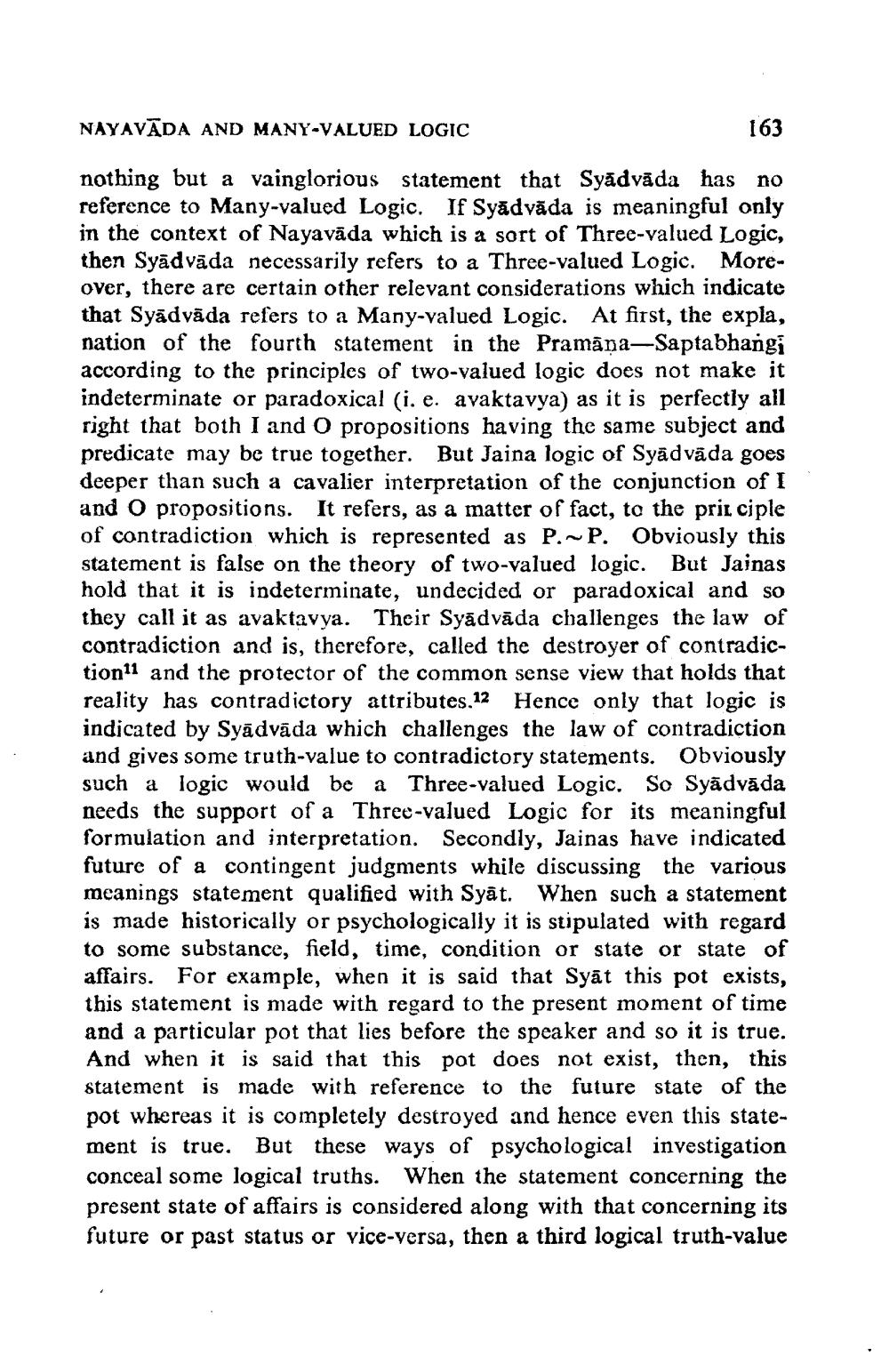________________
NAYAVADA AND MANY-VALUED LOGIC
163
nothing but a vainglorious statement that Syādvāda has no reference to Many-valued Logic. If Syādvāda is meaningful only in the context of Nayavāda which is a sort of Three-valued Logic, then Syādvāda necessarily refers to a Three-valued Logic. Moreover, there are certain other relevant considerations which indicate that Syādvāda refers to a Many-valued Logic. At first, the expla, nation of the fourth statement in the Pramana-Saptabhangi according to the principles of two-valued logic does not make it indeterminate or paradoxical (i. e. avaktavya) as it is perfectly all right that both I and O propositions having the same subject and predicate may be true together. But Jaina logic of Syādvāda goes deeper than such a cavalier interpretation of the conjunction of I and O propositions. It refers, as a matter of fact, to the principle of contradiction which is represented as P.-P. Obviously this statement is false on the theory of two-valued logic. But Jainas hold that it is indeterminate, undecided or paradoxical and so they call it as avaktavya. Their Syadvāda challenges the law of contradiction and is, therefore, called the destroyer of contradiction" and the protector of the common sense view that holds that reality has contradictory attributes.12 Hence only that logic is indicated by Syādvāda which challenges the law of contradiction and gives some truth-value to contradictory statements. Obviously such a logic would be a Three-valued Logic. So Syādvāda needs the support of a Three-valued Logic for its meaningful formulation and interpretation. Secondly, Jainas have indicated future of a contingent judgments while discussing the various meanings statement qualified with Syat. When such a statement is made historically or psychologically it is stipulated with regard to some substance, field, time, condition or state or state of affairs. For example, when it is said that Syat this pot exists, this statement is made with regard to the present moment of time and a particular pot that lies before the speaker and so it is true. And when it is said that this pot does not exist, then, this statement is made with reference to the future state of the pot whereas it is completely destroyed and hence even this statement is true. But these ways of psychological investigation conceal some logical truths. When the statement concerning the present state of affairs is considered along with that concerning its future or past status or vice-versa, then a third logical truth-value




